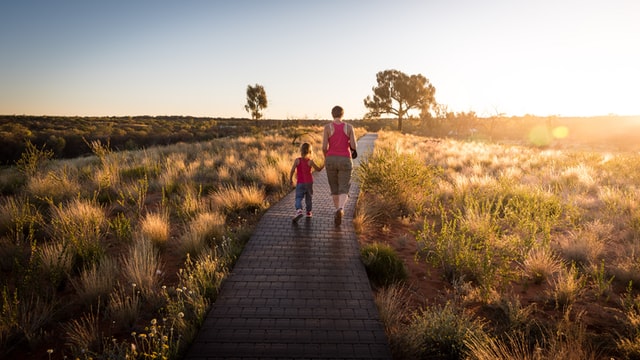How To Raise A Third Culture Kid

You’re nervous. I know you are. You may have traveled internationally a lot before; you may have lived overseas for a long period before, but now you have a kid. As an adult “third culture kid,” I’m here to tell you that it’ll all be okay. We stand in good company, TCKs, with one of the most famous examples being former President Barack Obama.
I was eight months old the first time I took a flight to the US from Manila. I was three when my family moved from Manila to Jakarta, and six when I moved from Jakarta to Bangkok. The first time I lived in the US was for boarding school, when I was 15. My closest friends now are from college, because my college years were the most stationary I’ve been my entire life, and I still spent two years overseas.
Sure, your child may not have childhood best friends when they’re 25 years old, but with social media, reconnecting with childhood friends in places like Bangkok, Kuala Lumpur, Kigali, or Dakar becomes even sweeter. Most recently, I literally ran into a childhood friend at the Siam BTS Station in Bangkok, which turned my rather routine business trip into an enjoyable reunion.
I was eight months old the first time I took a flight to the US from Manila. I was three when my family moved from Manila to Jakarta, and six when I moved from Jakarta to Bangkok.
Many expatriate families stick to their bubble and never go beyond their comfort zones. Please don’t do that. I can understand that it’s comforting to have people who speak the same language, have the same culture, and eat the same food, but why bother leaving the country if that’s all you’ll do?
Being the biracial child of diplomatic parents meant that my family could blend in nearly everywhere, and as a result, my babytalk was comprised of seven different languages. Do I still speak those languages? Not all of them anymore, but my ear for languages has been instrumental in learning new ones.
The schools your child will go to almost certainly will be more globally focused and have broader perspectives. As the world becomes more connected, learning how to be a global citizen can only be a good thing. Having said that, there will be times that large-scale global problems will manifest in your child’s everyday life. When I was ten years old, two boys got into a fistfight on the cricket field—one was Indian and the other Pakistani. When I told my parents about the fight (both boys were my friends, and I was sad that the cricket team was temporarily disbanded), they cautioned me to “Stay out of it, because some things were bigger than I knew.”
I can understand that it’s comforting to have people who speak the same language, have the same culture, and eat the same food, but why bother leaving the country if that’s all you’ll do?
I could continue listing the positive aspects of being a TCK, but that would be disingenuous. There are two substantial negatives that your child might face: separation anxiety and disconnect.
Are you, as a parent, prepared to send your kids to boarding school because of a conflict posting? My parents sent me and my sister to a rather posh boarding school in the UK, which would’ve been enjoyable had the reason not been that they were posted to a conflict zone. My mother said that every goodbye at the airport felt like her heart was being ripped out. I saw them twice a year.
As a TCK and having friends from a wide variety of nationalities, I literally had no concept of nationalism or patriotism. I married a then active-duty army officer from northeast Ohio, and was flabbergasted that he had never celebrated Guy Fawkes/Bastille/Philippine Independence! I could (and still can) sing “God Save the Queen” and “Le Marseillaise” as well as any UK or French citizen. In the wake of the most recent US election, however, I have only just realized how disconnected I am from many US citizens.
Their world is as difficult to fathom for me as I’m sure my world is for them. On the other hand, it’s a point of pride for me (and I’m sure, other TCKs) that my identity is based on people, and the places are only bookmarks.
How To Raise A Third Culture Kid.
A study by Dewaele and van Oudenhoven in 2009 showed that TCKs have increased levels of tolerance, are more open to learning new languages, demonstrate more flexibility when interacting with new cultures, and a greater interest in continuing a global nomadic lifestyle, which includes an interest in international careers (that’s right, you might eventually be grandparents to another TCK). Aside from having expanded worldviews and increased levels of cross-cultural competence, we are also more likely to possess bachelors’ degrees.
I also meet yet another TCK characteristic: I currently work in international development, much like my parents did before me. It’s been wonderful having parents who can help me with all aspects of my career. It hasn’t been an easy road for my family, but I think it’s been a worthwhile one.
Photo for How To Raise A Third Culture Kid by Unsplash.








